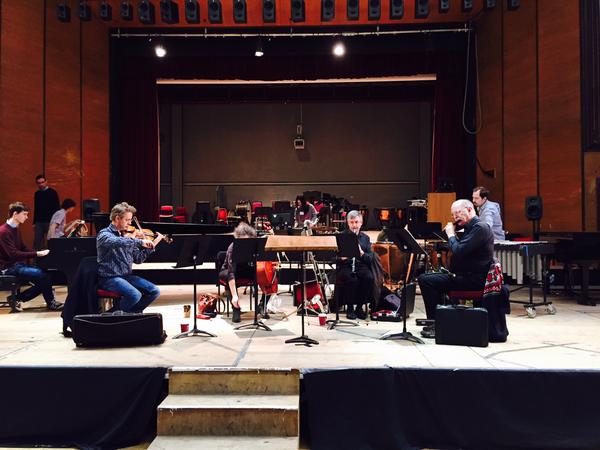Face the future
Happy New Year, one and all! Hope you managed to survive last Sunday without me (ahem) – I was off taking a holiday, as recommended in my last post, as a much-needed chance for a rest and some time away from to-do lists and electronic communication.
And then yesterday, freshly returned from the seaside, I set off to Bristol University for the final day of a very important conference. The annual Research Students’ Conference, run by the Royal Musical Association (RMA), is an opportunity for young scholars engaged in postgraduate research to meet their peers, present their work and get feedback from both students and senior academics, and take the chance to talk about a whole host of useful subjects around their career development: CV planning, job prospects, preparing work for publication, and so on. I attended these conferences myself when I was doing my MA and then my PhD, and I remember them extremely fondly as being great fun, endlessly thought-provoking, and having provided opportunities to make friends with whom I’m still in touch, and in some cases working with, to this day.
These days, of course, I’m on the other side of the process: I finished my own PhD several years ago, and have worked in academia since then, both on a permanent contract and, more recently, on an hourly-paid basis as part of my freelancing career. I also work for the RMA, as their Membership Development Officer (which has been a valuable means of keeping strong links and networks within academia, and keeping up with the latest research and major issues surrounding music in higher education). So this time I was attending as part-RMA representative, and part-cheerleader for the students as they took the floor to give their research papers, present their compositions for workshopping, and ask questions of established scholars who offered drop-in advice sessions and keynote speeches.
I had a third role there too, and it’s this that I want to expand upon a little. I was asked if I would take part in a panel on ‘Life post-PhD’, which brought together six speakers who were each given seven minutes to recount their academic experiences, talk about what they were doing now, and offer a few pointers and words of advice to the conference delegates.
Now, seven minutes is not a very long time. And as the continued existence of this blog would seem to suggest, I’m a person who feels the need to say a lot. So I had to stick together a series of bullet points that I thought would be most helpful. In part, they were drawn from my last post here: the importance of organisation, of being kind to yourself, of thinking outside the box. But there was another point to be made too, and one which I felt was particularly important to stress among a panel of speakers who were mostly (but not all) interested in remaining in education, and principally higher education.
It is this. There are a lot of jobs out there to do with music. These include, but are certainly not restricted to: working in music journalism, in print or online; recording and production; writing for concert programmes, CD notes and digital downloads; radio and TV work and research; music marketing and copy editing; working for an academic press which deals with music; working for a non-academic press which deals with music; animateur and education work with live performance venues; collection-based work in libraries, archives and information centres with a musical slant; museum work… and that is before we even get to the practical elements of your musical training – playing, singing, composing, conducting, workshop leadership and so on. Being a full-time academic is hard work. So are all these other things, in different ways. They suit people with different kinds of personalities, skill sets, interests, ambitions. One of my fellow panellists made the important point that if you’re thinking about pursuing a career as a lecturer, you should look up some job descriptions and see what it actually entails. Better still, go and talk to some lecturers (and here the Research Students’ Conference provides a golden opportunity). I would add to this: go and talk to as many people in music as possible. Look around you. Music is everywhere, all kinds of it, and many of the job areas listed above will allow you to draw on elements of your PhD training (and perhaps even get some of your material out there, even if it’s as sleeve notes or a magazine article rather than in a peer-reviewed journal).
And you know what, even if you decide academia is definitely where you want to be, look elsewhere anyway. Working in a university or college comes with a certain set of privileges, a chance to set up projects, experiments and opportunities for yourself and your students that would not be sustainable outside of a learning environment. That is extremely important, as is providing the time and space to think and learn. But these institutions are not divorced from the real world, and nor should its lecturers be. It could provide you with new ways to work or research, new outlets for publication or discussion, even new partnerships and projects. And when, a few years down the line, you get to sit on a ‘Life post-PhD’ panel too, think of the bright horizons you’ll be able to offer to the performers, composers, writers, speakers and researchers of tomorrow.
***
A transcript of the ‘Life post-PhD’ panel will be available on the RMA’s student blog in a few weeks’ time. Check the link out anyway – there are lots of great resources here for current students, early career researchers, and anyone else with an interest in music and research.


